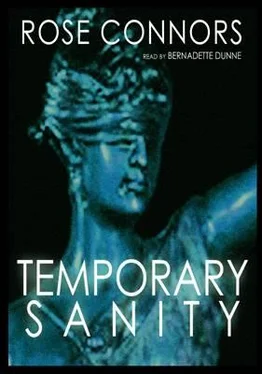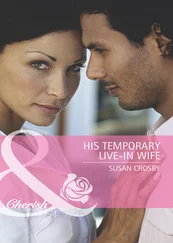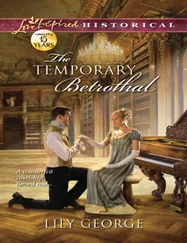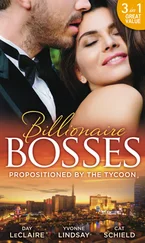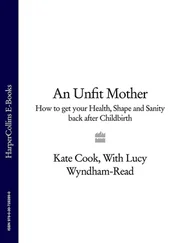Another newly graduated attorney, a young woman Harry had noticed around the courthouse more than once, sat a few stools away. She smiled at him when he arrived, then looked down at her glass of wine. He was planning his opening line-and it would have been brilliant, he swears-when Beatrice approached from behind. He didn’t hear her coming.
Beatrice latched on to his shoulders and massaged, Harry says, until he squirmed off the stool and out from under her grasp. The young attorney who had smiled at him left her stool too, then, and disappeared into the crowd.
That’s when he lost it.
Harry claims not to remember his exact words, but he’s pretty sure they were graphic. In essence, he says, he told Beatrice Nolan to keep her hands to herself. Then he told her to get lost-for good. And he wasn’t quiet about it. The bar crowd hushed. Beatrice froze. He blasted her.
And she hasn’t spoken a civil word to him since.
There aren’t many people who’ve worked at the County Complex for twenty years. Most county employees don’t know anything about the scene at the Jailhouse or the events leading up to it. Even the old-timers-the few who were around back then-have long since forgotten about it.
But Beatrice hasn’t.
Members of the courthouse staff comment frequently on the open animosity Judge Nolan shows toward Harry Madigan. No one can figure it out. When I first started working at the DA’s office, my coworkers routinely-and nonchalantly-referred to Harry as “that big guy Judge Nolan throws in jail all the time.” I didn’t believe it. Not until I saw it for myself.
Beatrice has always done her best to steer clear of criminal cases, but no judge in Barnstable County can avoid them entirely. During my decade of prosecuting, I tried a half dozen cases before her. In half of them, Harry Madigan was my opponent. All three times, he landed in jail.
Any criminal defense attorney worth his salt spends some time in lockup. But Harry has served far more hours than most, the vast majority at the behest of Judge Beatrice Nolan. “Insubordinate,” she calls him.
I wonder if she knows what he calls her.
Judge Nolan signals the bailiff and he leaves to summon the jury. We’re stuck. Beatrice Nolan is our judge. Worse, she’s Buck Hammond’s judge. And there’s not a damn thing we can do about it.
Harry stares up at her for just a moment before setting his jaw and turning back to Buck and me. “Damn,” he mutters, “I wish I’d packed.”
Judge Nolan issued a stern greeting to our jurors as they took their seats and looked around the room, surveying their new surroundings. She told them Judge Leon Long had fallen ill and would be unable to continue the trial. Their faces registered concern for Judge Long, disappointment for themselves. The atmosphere in this courtroom is decidedly darker than that in Judge Long’s. And it’s not only because the room has no windows.
Stanley could barely wait to begin. He’s downright ebullient about today’s personnel change. Beatrice Nolan is his kind of judge, a courtroom drill sergeant. She consistently handles criminal defendants by the book. And then she throws it at them.
The meat of Stanley’s case came into evidence yesterday. He got all he needed to establish the elements of first-degree murder: A man is dead. The defendant killed him. The killing was premeditated. Stanley also got a rare prosecutorial bonus: it all happened on TV.
Today Stanley needed to establish one final element: sanity.
Because we’ve raised the issue, it’s incumbent upon the Commonwealth to prove that Buck Hammond was sane at the moment he pulled the trigger. Stanley closed his case this afternoon with two expert witnesses who said exactly that.
The first was Malcolm Post, a Johns Hopkins-educated psychologist who’s been in private practice for more than twenty years. Dr. Post testified that he examined Buck Hammond for competency and criminal responsibility on June 22, the day after the shooting. The doctor conducted a forty-five-minute interview, during which Buck denied suffering hallucinations or delusions. Buck told the doctor he had never been treated for a mental disorder and had never sought help from any mental health professional.
Dr. Post told the panel that Buck’s answers to questions were “straightforward, not rambling, not confused.” The doctor testified in a relaxed, nonconfrontational manner, using simple terms; no showy words, no scientific jargon. The jurors seemed to like him.
Next Stanley called Dr. Sheldon Turner, Professor of Psychiatry at Tufts Medical School. Dr. Turner testified that he examined Buck for almost three hours on October 25, about four months after the shooting. Before the examination, Dr. Turner reviewed police reports and other court documents, including our expert psychiatrist’s written evaluation. He also watched the videotape, of course.
In response to carefully worded questions from Stanley, Dr. Turner gave his professional opinion that Buck Hammond was criminally responsible at the time he shot Hector Monteros. The doctor testified that Buck was fully able to tell right from wrong, knew he was violating the law, and was capable of controlling his actions. Simply put, the doctor concluded, Buck chose to kill.
Harry cross-examined both men, which didn’t take long. No lawyer can do much with an adverse witness who’s a competent expert, but Harry did what he could. Both doctors acknowledged they were being paid by the Commonwealth for their testimony. Both admitted they had testified in dozens of cases for the prosecution. Dr. Post said he’s appeared only once on behalf of a criminal defendant; Dr. Turner not at all.
Most significantly, both experts conceded that Buck Hammond had suffered severe trauma just hours before the shooting. The ultimate human tragedy, they agreed.
Stanley declined redirect and thanked both physicians repeatedly for their testimony. Then, with his tiny eyes beaming and his stance triumphant, he rested his case. For a moment, I thought he might take a bow. It’s time-at last-for my deferred opening.
The podium is against the wall opposite the jury box. Harry offers to move it for me, but I shake my head. I’d rather be free to walk around while I open, move closer to the jurors than the podium would allow. Besides, I intend to be brief.
I leave my seat and walk toward the jury box. “Ladies and gentlemen…”
Beatrice’s gavel pounds a half dozen times. It sounds like an angry woodpecker.
“Counsel,” she barks, “what are you doing?”
A moment passes before I realize she’s speaking to me. “Getting started,” I tell her.
“Getting what started?” Beatrice’s bird eyes are as wide as I’ve ever seen them.
“Our case. Our defense. The Commonwealth just rested.” Stanley’s wrap-up was pretty dramatic. I can’t imagine how the judge missed it.
“I’m well aware of that, Counsel. You’ll recall I was here when it happened.”
I turn to Harry. I’m at a loss. He’s not, though. His expression says he knows exactly what’s going on.
The judge leans back in her chair, arms folded across her robe, gavel still in hand. “Call your first witness, Ms. Nickerson.”
“But Your Honor, we haven’t opened.”
“You most certainly have.”
“No, we haven’t, Judge. We deferred.”
Beatrice holds up her copy of the trial transcript. “You did no such thing.”
“Your Honor, if you’ll give me a moment”-I move to the bench and reach up for the printout-“I’ll show you the spot. The defense opted to defer opening. Judge Long allowed it.”
Beatrice yanks the transcript backward with both hands, as if it’s her purse and I’m about to snatch it. “Judge Long is not presiding over this trial, Counsel.” She enunciates each word carefully, as if she’s speaking to a dull-witted child. “I am.”
Читать дальше
